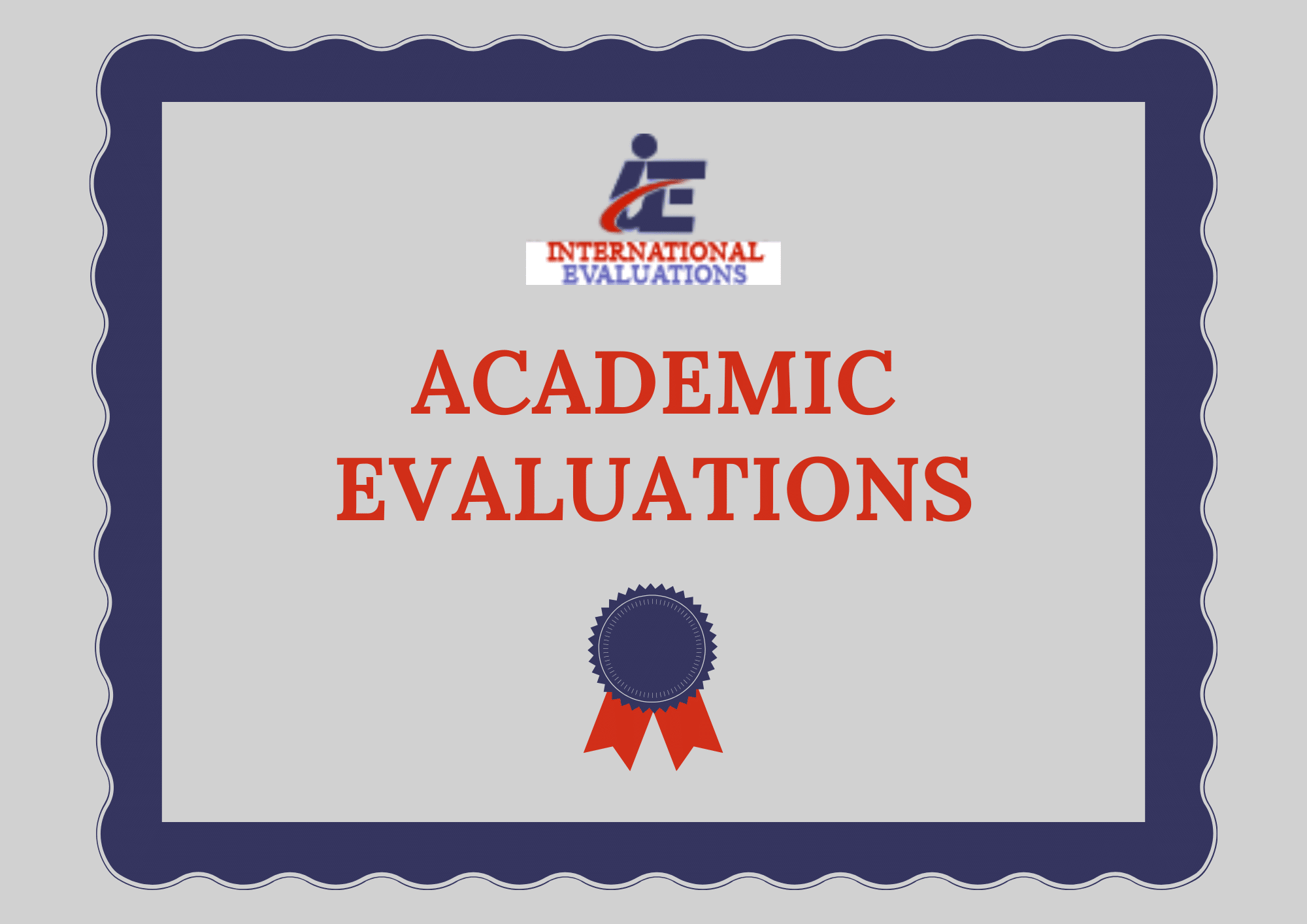Introduction
In an increasingly globalized world, the significance of evaluating work experience for global markets can not be downplayed. As organizations expand their horizons across borders, comprehending how to effectively examine work experience ends up being important. The requirement for accurate academic credential evaluation and international credential assessment services occurs, with a concentrate on aligning professional qualifications with regional requirements.
This article explores the necessary considerations and methods associated with examining work experience for global markets. By examining different elements consisting of course-by-course credential evaluation, work experience evaluation, and the function of expert viewpoint letters, we intend to provide detailed insights that deal with experts, companies, and evaluators alike.
Evaluating Work Experience for International Markets: Secret Factors To Consider and Strategies
When examining work experience worldwide, several essential considerations enter play. Each country has its own set of requirements and practices regarding education and work. For that reason, understanding these nuances is important in guaranteeing a reliable assessment of qualifications.
Understanding International Standards in Work Experience Evaluation
Countries differ substantially in terms of expert accreditation and recognition of qualifications. For instance, what is considered acceptable work experience in one nation might not hold the same weight in another. Thus:
- Researching Country-Specific Requirements: Acquainting oneself with the specific requirements set by regulatory bodies in target nations is crucial. Utilizing Credential Examination Services: Organizations focusing on global credential assessment can offer valuable insight into how foreign certifications are viewed domestically.
The Role of Academic Credential Evaluation
Academic credentials act as a https://cashmnrt195.mystrikingly.com/ structure upon which work experience is typically examined. Appropriate assessment ensures that a candidate's instructional background aligns with market expectations.
Types of Academic Credential Evaluations:- Course-by-Course Credential Evaluation: This approach uses detailed insights into private courses taken by prospects, translating them into comparable credits within the host country's education system. General Evaluations: These provide an introduction of a prospect's credentials however might lack the granularity needed for specific professional sectors.
Importance of Course-by-Course Credential Evaluation
A course-by-course method enables employing managers to assess prospects more thoroughly based on their academic achievements.
- Detailed Insight: This technique breaks down each course completed by a specific, assisting assess whether they meet particular educational requirements revealed by regulative bodies or employers. Facilitating Task Matching: By matching specific courses with task requirements, companies can ensure that prospects have exactly the ability needed for roles within their industry.
Work Experience Assessment: A Comprehensive Approach
Evaluating work experience transcends merely looking at job titles; it needs an analytical view that considers numerous elements such as period, importance, and depth of duties undertaken.

Factors Affecting Work Experience Evaluation
Relevance to Position Sought: How closely does previous work associate to the prospective role? Duration and Quality of Experience: Prolonged period may recommend stability however does it also show growth and development? Nature of Duties Undertaken: What were the specifics? Did the prospect lead jobs or contribute substantially to team goals?Expert Viewpoint Letters as a Resource
A specialist viewpoint letter acts as an important tool throughout the assessment procedure:
- Defining Expertise: A professional's insights can clarify complicated roles and duties undertaken in previous positions. Supporting Documentation: Such letters can bolster applications when proving one's viability based on non-traditional experiences.
Developing Effective Company Strategy Evaluations
For specialists aiming to develop themselves worldwide through entrepreneurship or consultancy roles, company strategy examinations end up being paramount.
Understanding Market Needs: Carrying out thorough research into local market demands assists individuals in customizing their organization propositions effectively. Evaluating Competitor Landscape: Comprehending existing competitors will assist form service strategies accordingly. Financial Practicality Assessments: Financial projections should be realistic based on available data from similar existing services within a region.Bridging Cultural Distinctions in Work Experience
Navigating cultural subtleties is essential when evaluating international qualifications:
- Keeping an open mind towards various working styles promotes much better combination into diverse environments. Awareness of cultural norms can improve communication amongst diverse teams.
Utilizing Technology for Effective Evaluation
The digital age has actually reinvented how evaluations are conducted:
- Online platforms assist in much easier submission of documents needed for credential evaluations. Remote consultations indicate that geographical barriers are less preventing than before.
Challenges Dealt with Throughout International Work Experience Evaluations
Evaluators frequently experience numerous difficulties while assessing global credentials:
Lack of Standardization Across Borders Variability in Educational Systems Language Barriers Hampering Clear Communication Insufficient Documentation from CandidatesStrategies for Conquering Challenges
To mitigate these obstacles:
- Engage with local specialists knowledgeable about local practices. Use standardized structures where relevant to improve assessments.
FAQs
What is academic credential evaluation?- It refers to assessing academic qualifications from one nation against those recognized in another nation to figure out equivalency.
- These services evaluate foreign educational documents to ascertain its validity and equivalence within regional contexts.
- This involves evaluating each private course taken by a candidate instead of offering a basic summary, focusing on credit equivalencies.
- It helps companies determine if prospects have relevant abilities required for success in specific roles within their organization.
- It's a file offered by recognized specialists that validates an individual's previous experiences or academic background concerning market standards.
- Ensure all records are main copies, include detailed descriptions of functions held during employment, and gather any additional supporting documents like reference letters or awards gotten during your profession journey.
Conclusion
Evaluating work experience for worldwide markets provides both chances and challenges alike; however, equipped with proper strategies and knowledge about key considerations such as academic credential assessments and professional viewpoint letters-- specialists can navigate these waters efficiently! The globalization trend continues unabated; hence investing time into comprehending different techniques toward evaluating qualifications across borders will pay dividends-- both personally and expertly-- making it possible for people to thrive internationally while contributing value-added perspectives originated from diverse backgrounds!
